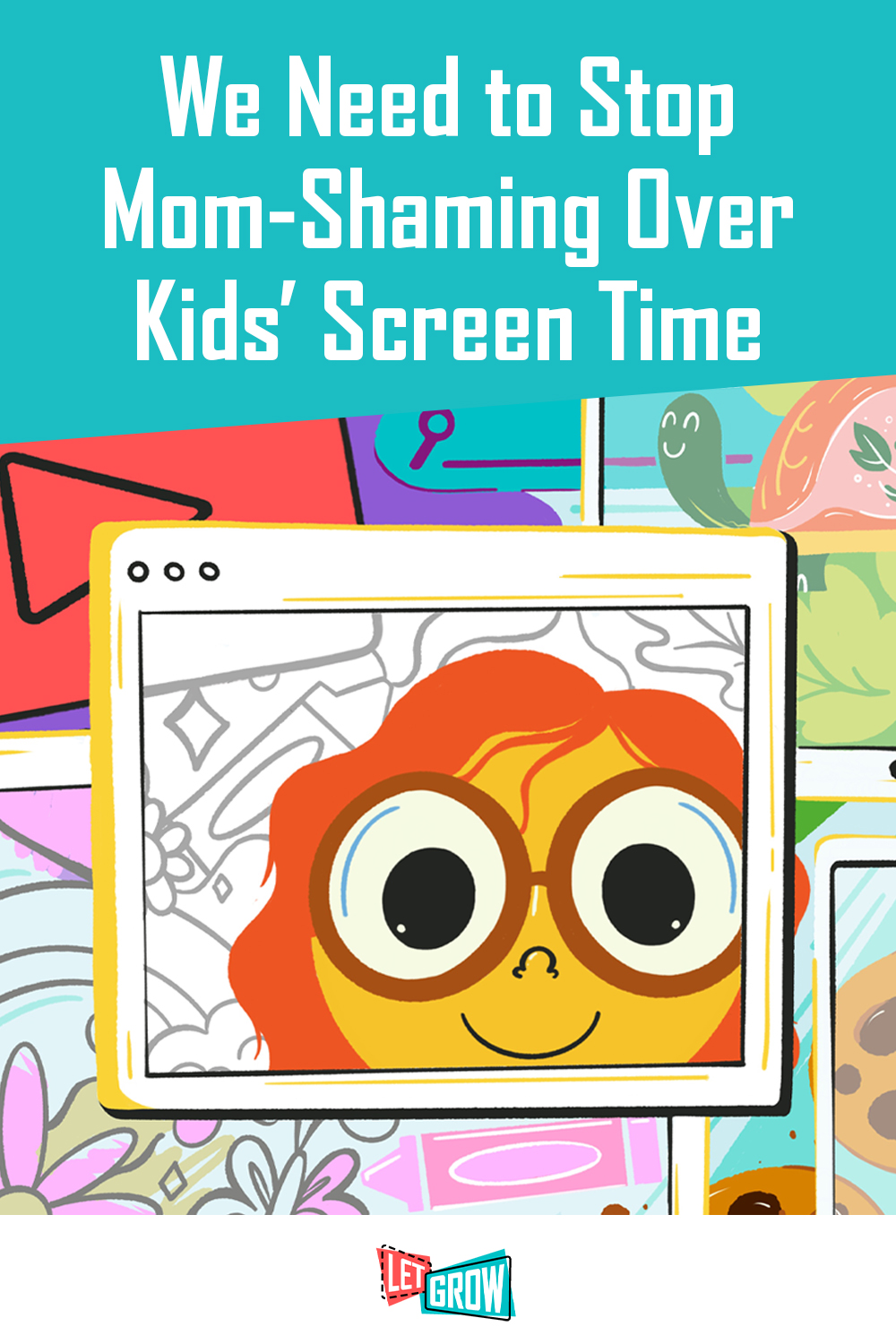






We Need to Stop Mom-Shaming Over Kids’ Screen Time
“Mom!” I heard my 5-year-old daughter yell from somewhere else in the house. I was in my home office, participating in a team meeting on Zoom (our new quarantine normal).
“Mom!” She was more insistent now. Apologetically, I motioned a be-right-back gesture to my colleagues and went to see what was wrong. I found her sitting at the foot of the stairs, nose buried in my iPhone. She looked up as I approached, eyes wide with the importance of what she was about to say. “Mom, Cookie Monster’s birthday is November second! They’re baking cookies.”
The kids’ screen-time debate is a sensitive one.
I’ll admit it: 30 minutes prior, knowing I had a long meeting coming up, I’d handed my phone to my daughter and sent her on her way. Unsurprisingly, she knows how to unlock it and where to find her games. She has an adorable kid app she uses to “compose” music. Then there’s Disney+, PBS Kids apps, and of course YouTube Kids.
Like many parents these days, I worry about the time she spends staring at a device. I’ve seen the articles and reports that basically say we are dooming our kids by letting them spend time staring at a screen. I’ve also seen plenty of mom-shaming (sometimes we even mom-shame ourselves) about kids’ screen time. I have to admit, I have my doubts about whether screens are as evil as we make them out to be. As my daughter has gotten older and her interests have broadened, I’ve come to appreciate the variety of things she’s doing with a screen. And yes, she’s actually learning some pretty impressive things from it.
I’m not the only one who recognizes the positives of screen time. In an important article on Psychology Today, from 2012, Let Grow founding member Peter Gray reminds us that computers are the most significant tools of modern society. That certainly remains the case today, and it’s perhaps even amplified by present-day pandemic cultural changes. Peter notes:
Children come into the world designed to look around and figure out what they need to know in order to make it in the culture into which they are born. They are much better at that than adults are. That’s why they learn language so quickly and learn about the real world around them so much faster than adults do. Whenever there’s a new technological innovation, kids learn how to use it more quickly than their parents do. They know, instinctively, what they must learn in order to succeed.
Let’s remember all the ways we can use screens for good.
One day last year on our commute to school, we passed a small pond. I mentioned there were probably frogs and turtles near that pond, prompting a question from my daughter about what turtles eat. Slightly embarrassed, I admitted I wasn’t sure. “We should search that when we get home later,” she said quite matter-of-factly. And then we did. (By the way, it can vary quite a bit, but many turtles are vegetarians.)
Since then, I’ve watched her hone her skills on screens by getting Siri or YouTube Kids to deliver the information she wants. Mostly through trial and error, she’s come to understand how best to phrase her requests. She now knows that saying “show me videos about coloring” into YouTube Kids’ voice search is less effective than simply “coloring videos.” My generation learned to use the index of the encyclopedia set to find answers. Today’s youth need to be adept at using search engines. Frankly, I’m glad she’s already started learning how.
Not only are our screens vehicles for today’s digital encyclopedias, they also deliver us our photo albums, our books, our music, and so much more. They are—especially now—our connection with friends and family. They’re crossword puzzles and word games with friends. They tell us the best way to care for plants in our gardens or who to call to fix a leaky faucet. (If you’re savvy, you can even fix that leaky faucet with the help of a YouTube tutorial.) A screen can show us how to bake sourdough bread—or even chocolate chip cookies for Cookie Monster’s birthday.
Screens deserve a spot in our kids’ lives.
Broadly dismissing kids’ screen time as “bad” fails to recognize the utility these devices have become and the acceptable offline pastimes they’ve replaced. We wouldn’t think to demand our children spend less time reading, or looking at photo albums, or finding out what frogs eat. Rather than condemning screens outright, we ought to be having a more nuanced dialogue. Let’s look at the things our children are doing with them. Of course, monitoring screen time is a whole other debate.
I’ll admit it’s not always easy, nor is all our screen time created equal. My daughter isn’t always watching videos about baking chocolate chip cookies with Cookie Monster. Sometimes, I find her slack-jawed and a little zoned out while watching a video of a kid opening up a new toy. I don’t love that kind of content. At those times, I do look for ways to get her to take a break.
Yes, I realize not all screen time is educational or healthy, but balance is what we’re going for. I think it would do us all a bit of good to admit there’s merit in our children becoming adept at using these devices, and I’d like to start talking more about the impact—positive and negative—of what they’re doing with them instead.




Add your comment now using your favorite social account or login to your LetGrow account.